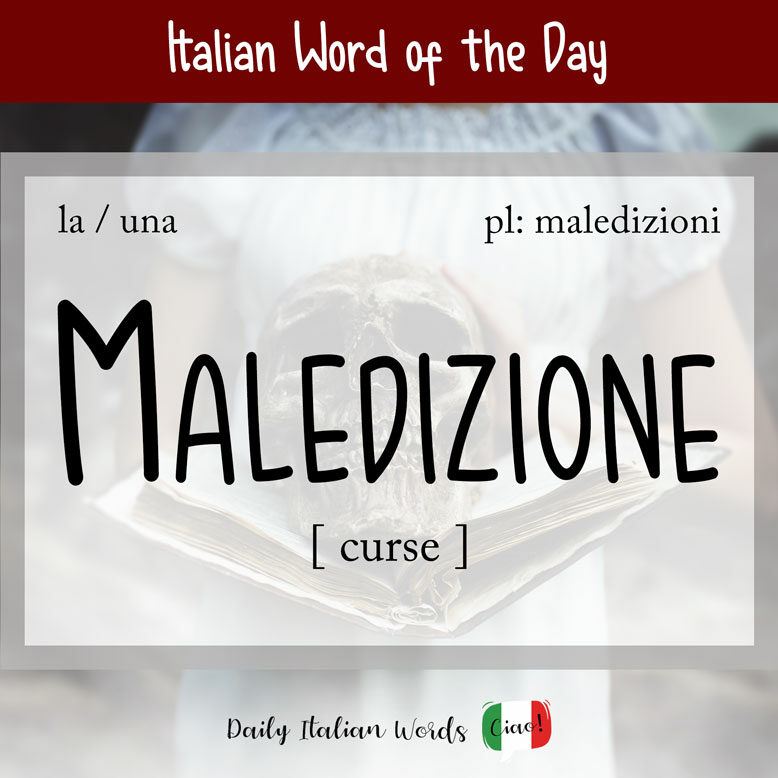The word for curse in Italian is maledizione (feminine, plural: maledizioni). It is composed of two parts: male (meaning bad or evil) and dizione (meaning diction or speech).

Related to the noun is the verb maledire (lit: to say bad) which means to curse or to damn. Another more complex way of saying the same thing is invocare or lanciare una maledizione.
Le streghe hanno invocato una maledizione su di lui.
The witches put a curse on him.

Below are some other verbs you’ll often see paired with maledizione:
- avere una maledizione addosso = to be cursed
- essere sotto una maledizione = to be under a curse
- spezzare una maledizione = to lift / break a curse
- togliere una maledizione = to lift / break a curse
- coprire di maledizioni = to cover with curses
Similar to the English word, maledizione doesn’t always indicate a curse invoked by a supernatural power. In a figurative sense, it may also refer to anything capable of causing harm, injury or misfortune.
La disoccupazione è una vera maledizione al giorno d’oggi.
Unemployment is a real curse in this day and age.
Maledizione! is also a somewhat old-fashioned sounding expletive that translates as Damn it! or Curses! in English. Although many people still use it, it has lost ground to other curse words such as mannaggia and accidenti. If you’re interested in knowing more, you can find a full list of curse words in our dedicated article.
Maledizione! Ho perso l’autobus!
Damn it! I missed the bus!
Heather Broster is a graduate with honours in linguistics from the University of Western Ontario. She is an aspiring polyglot, proficient in English and Italian, as well as Japanese, Welsh, and French to varying degrees of fluency. Originally from Toronto, Heather has resided in various countries, notably Italy for a period of six years. Her primary focus lies in the fields of language acquisition, education, and bilingual instruction.


